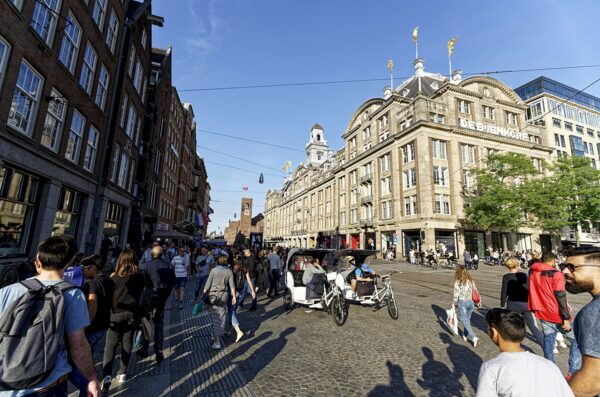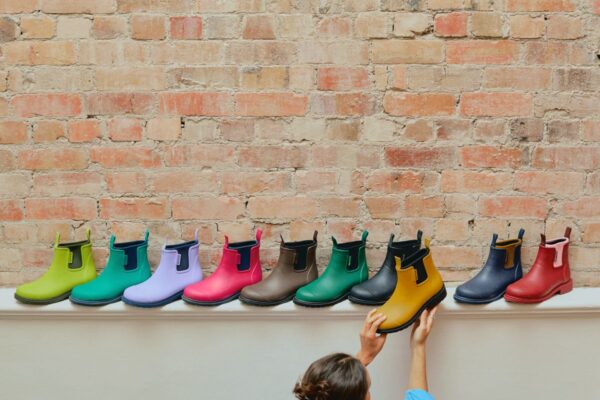
Research analyst, GlobalData, has found that £1.5bn has been freed up for retail survivors in 2018, as the UK non-food retail sector becomes reliant on the demise of weaker operators to maintain growth for the survivors. The company estimates at least £1.5bn will be released by failing retail businesses in 2018 with just three of this year’s casualties, Maplin, Toys R Us, and Poundworld, freeing up around £1.4bn of consumer spending for competitors to grab. And this does not take account of sales from store closures such as House of Fraser’s shrinking portfolio.
 Maureen Hinton, Global Retail Director at GlobalData, commented, ‘‘While these sales will not go immediately to competitors, they will certainly benefit in the crucial Q4 sales period. The money consumers spent at these retail failures does not disappear, but is recycled for the benefit of others in the market, which is essential when there is so little overall retail growth.’’
Maureen Hinton, Global Retail Director at GlobalData, commented, ‘‘While these sales will not go immediately to competitors, they will certainly benefit in the crucial Q4 sales period. The money consumers spent at these retail failures does not disappear, but is recycled for the benefit of others in the market, which is essential when there is so little overall retail growth.’’
The underlying problem for UK retailers is overcapacity. Along with other mature western retail economies, demand is maturing and growth is slowing, and this is a major factor in the death of the weaker operators, particularly non-food retailers where the majority of products are non-essential.
GlobalData forecasts that the non-food sector will grow by 1.4% in 2018, increasing by an additional £2.6bn spend, but the spend re-directed from casualties will boost survivors’ growth and help the most successful retailers to outperform.
This is not a new phenomenon, at the beginning of the financial crisis, in 2008, £4.7bn was released from failures including Woolworths, MFI and major footwear specialists, in 2009 another £3.5bn. Hinton concluded, ‘‘Retail failures is an important underlying factor that has supported the retail market over the past decade. The problem is what will survivors do to achieve sales growth once the weakest have been eradicated?’’
 Despite this silver lining, bosses of Britain’s biggest retailers are the most gloomy they have been for six years, according to the annual Retail Chairmen Survey conducted by headhunter Korn Ferry. Ninety per cent of those chairing the country’s 34 leading businesses said they do not know what Brexit will mean for their firms and 80% are not prepared for it.
Despite this silver lining, bosses of Britain’s biggest retailers are the most gloomy they have been for six years, according to the annual Retail Chairmen Survey conducted by headhunter Korn Ferry. Ninety per cent of those chairing the country’s 34 leading businesses said they do not know what Brexit will mean for their firms and 80% are not prepared for it.
Some 86% of businesses in the first stage of making a rates appeal in the five months to August 8 said that they found the new Check Challenge Appeal system ‘unreasonably difficult’ to use and were dissatisfied or very dissatisfied with the process. The findings follow a Freedom of Information request to the Valuation Office Agency by property adviser Colliers International. There has been a significant drop in the number of appeals since the introduction of the system last year.
Separately, Greg Clark, secretary of state for business, has told a Conservative Party conference fringe event that the Treasury is conducting a review of business rates and a change would be ‘one way’ of recognising that the high street ‘makes a big contribution to the community, and to villages, towns and cities’.
Retail sales slowed slightly in September, but remained broadly in line with the long-run average, according to the CBI Distributive Trades Survey, which revealed that durable household goods, hardware and DIY saw growth.
After five years of deflation, shop prices have increased for the second consecutive month. In September, overall shop price inflation inched up to 0.2% from 0.1% in August, according to the British Retail Consortium (BRC) and Nielsen. However, non-food deflation eased slightly last month to 0.9% from 1% in August.
Responding to the prime minister’s speech at the Conservative Party Conference, BRC chief executive Helen Dickinson said that although Theresa May’s commitment to a strong trading relationship with the EU following Brexit was encouraging, ‘retailers need certainty’ and a scenario involving the introduction of tariffs and costly checks at borders would be damaging. She added that the retail industry and employers in its supply chain were ‘extremely concerned about future restrictions on low skilled migration’.
In September the consumer mood ‘dropped a couple of notches’ with GfK’s confidence index decreasing by two points as respondents reflected on the uncertainty surrounding Brexit. However, when they talked about their personal finances the scores were still positive.
Billionaire John Whittaker has formed a consortium in an attempt to take shopping centre group Intu Properties private.
Alan Monahan

















